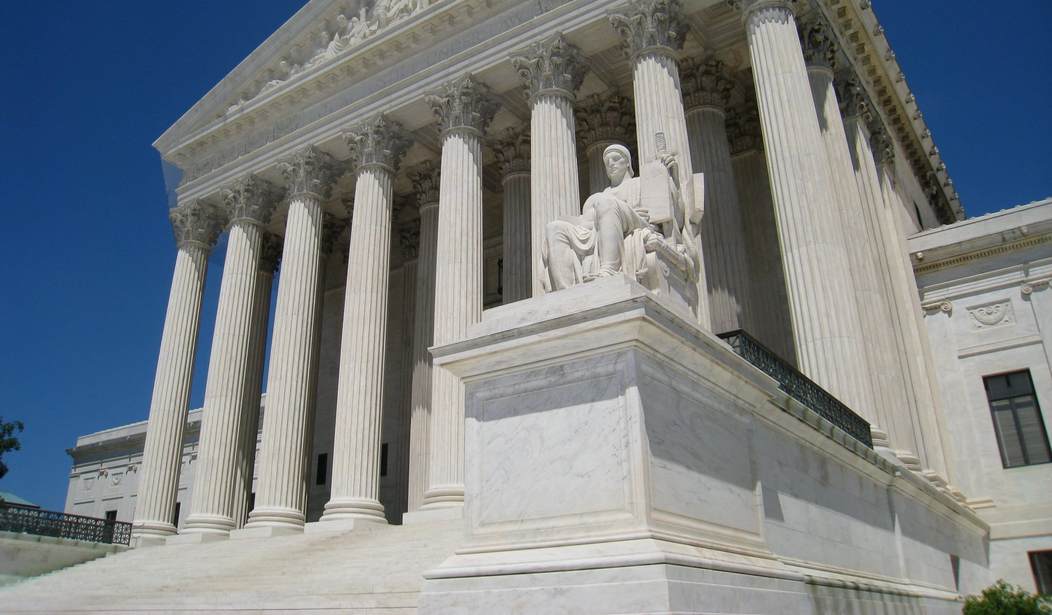On Thursday, the Supreme Court upheld the constitutionality of the Bladensburg Peace Cross, a World War I memorial that secularists attacked as an establishment of religion. The ruling largely set aside the Lemon test, a vague formulation to determine whether or not a public religious symbol violates the Establishment Clause of the First Amendment. Yet law experts disagreed as to just how devastating this ruling was for the Lemon test, a favorite of secularists seeking to ban religious symbols from the public square.
“The Lemon test presents particularly daunting problems in cases, including the one now before us, that involve the use, for ceremonial, celebratory, or commemorative purposes, of words or symbols with religious associations,” Justice Samuel Alito wrote in American Legion v. American Humanist Association (2019). While his opinion represented a plurality among the justices, he did not explicitly strike down the Lemon test.
Instead, he argued that the facts of the case “counsel against efforts to evaluate such cases under Lemon and toward application of a presumption of constitutionality for longstanding monuments, symbols, and practices.”
Seven of the nine justices agreed that the Bladensburg Peace Cross, erected in 1925 to commemorate World War I soldiers, did not amount to a government establishment of Christianity, despite the Christian symbolism of the cross. Most of the justices adopted arguments that would have been familiar to the Founding Fathers and in keeping with the plain text of the First Amendment. When the amendment was passed in the late 1700s, “establishment of religion” meant clear government support for a religion — as in the case of England where taxes support the Church of England.
Yet the Lemon test, established in Lemon v. Kurtzman (1971), created a complex legal doctrine foreign to this plain meaning at the time of the amendment. Justice Clarence Thomas slammed the “long-discredited test,” saying the Court “rightly rejects its relevance to” cases like the Bladensburg Peace Cross.
Yet Thomas went further. “I would take the logical next step and overrule the Lemon test in all contexts,” he wrote in a concurring opinion. “First, that test has no basis in the original meaning of the Constitution. Second, ‘since its inception,’ it has ‘ been manipulated to fit whatever result the Court aimed to achieve.’ … Third, it creates enormous confusion in the States and the lower courts.”
Focusing on the actual text of the law and its plain meaning, Thomas argued that “the text and history of this Clause suggest that it should not be incorporated against the states” (since the clause begins “Congress shall make no law). Furthermore, the Bladensburg “religious display does not involve the type of actual coercion that was a hallmark of historical establishments of religion.”
Like Thomas, the Cato Institute’s Ilya Shapiro praised the Court’s ruling in American Legion v. AHA, but lamented that it did not explicitly strike down the Lemon test.
“[The Supreme Court] did well to squeeze Lemon—the three-prong test courts are supposed to use in evaluating Establishment Clause challenges—but should’ve gone further and scrapped it explicitly,” Shapiro tweeted.
https://twitter.com/ishapiro/status/1141730337376100352
“This area of law has long been plagued with judicial hand-waving at nebulous standards, producing results good for a particular case but without real guidance about the kinds of actions regarding religion that governments can take (or allow to be taken on government property),” he added. “As Justices Thomas/Gorsuch explain in their concurrences, the Court in future should rely on the original public meaning of the Establishment Clause, which ensures liberty of conscience and protects people from truly ‘established’ state religions that coerce belief and support.”
Yet Jeremy Dys, deputy general counsel at First Liberty, the firm that represented the American Legion in support of the cross, drew a far more sweeping conclusion.
“Monuments, displays, symbols, and similar practices that include some form of religious expression are presumptively constitutional. The Lemon test does not apply to those anymore,” Days told PJ Media.
This is indeed the logical conclusion of Alito’s ruling, but the strength of stare decisis — the legal doctrine that previous cases establish precedent that must be respected — still upholds the Lemon test to some degree, Andrea Picciotti-Bayer, legal advisor for the Catholic Association, told PJ Media.
She said it was far from clear “whether Lemon has been finally put to rest or it still continues to prowl about, confusing America’s judges.” While most of the justices decided to “ignore Lemon, either with disdain or because it’s unworkable,” only Thomas advocated scrapping the test entirely.
“Just from the jurisprudence perspective, a case isn’t overruled unless it’s expressively overruled. I do think that it would be necessary,” Picciotti-Bayer explained.
Yet the American Legion case did set up an alternative standard far more in keeping with the original meaning of the First Amendment. “Instead of thinking about the Lemon test, we should look at the American Legion case,” she argued.
Picciotti-Bayer also agreed with Justice Brett Kavanaugh, who suggested that the presumption of constitutionality extended to old monuments like the Bladensburg Cross should extend to more recent monuments as well. “Justice Kavanaugh didn’t want the case to be perceived very narrowly as only applied to centuries-old monuments. He read the majority decision to allow for more contemporary monuments to pass constitutional muster. And I would personally side with that interpretation as well.”
While American Legion did not scrap the Lemon test, much to Thomas’s and Shapiro’s chagrin, it did present an alternative approach to Establishment Clause cases that should replace the Lemon test in the future. The decision may not be as definitive as Originalists would like, but it did deal a powerful blow against secularists’ favorite legal doctrine.
Follow Tyler O’Neil, the author of this article, on Twitter at @Tyler2ONeil.









Join the conversation as a VIP Member